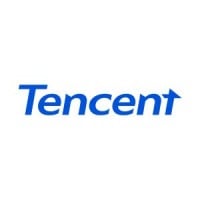
CircleCI Company Cyber Security Posture
circleci.comModern software builders need to reduce risk and confidently ship. In an ever-shifting tech landscape, that’s harder than ever. This is why we built CircleCI: the CI/CD platform that makes it easier for developers to win at software. At CircleCI, we know that velocity must go hand in hand with building securely. World-class engineering teams don’t sacrifice security for speed but rather choose CircleCI to deliver both. Our product philosophy for our customers has eight pillars: 1. Security for all: We believe that security features should be accessible to all customers, regardless of their plan level. 2. Unobtrusive security: We design security features to be intuitive and easy to use and believe most of all they must not interfere with the user experience. 3. Secure by default: We build secure defaults out of the box. 4.Traceability: We believe visibility can drive accountability. 5.Store of no value: We strive to minimize the amount of valuable or sensitive data stored. 6. Fail securely: When we fail, we fail securely. 7. Least privilege: We grant users and systems only the minimum level of access necessary to perform their intended functions. 8. Complete mediation: We ensure that all user actions are fully authorized and authenticated at all times. CircleCI enables developers to build faster, more secure, and more reliable pipelines, without needing to be a CI/CD expert. As a result, teams building on CircleCI regularly achieve elite software delivery benchmarks.
CircleCI Company Details
circleci
322 employees
32176.0
511
Software Development
circleci.com
Scan still pending
CIR_2335941
In-progress
Between 900 and 1000
This score is AI-generated and less favored by cyber insurers, who prefer the TPRM score.
 CircleCI Global Score
CircleCI Global Score.png)

CircleCI Company Scoring based on AI Models
| Model Name | Date | Description | Current Score Difference | Score |
|---|---|---|---|---|
| AVERAGE-Industry | 03-12-2025 | This score represents the average cybersecurity rating of companies already scanned within the same industry. It provides a benchmark to compare an individual company's security posture against its industry peers. | N/A | Between 900 and 1000 |
CircleCI Company Cyber Security News & History
| Entity | Type | Severity | Impact | Seen | Url ID | Details | View |
|---|---|---|---|---|---|---|---|
| CircleCI | Data Leak | 85 | 3 | 12/2022 | CIR2325123 | Link | |
Rankiteo Explanation : Attack with significant impact with internal employee data leaksDescription: The software development service CircleCI suffered a data security incident after which it urged users to rotate their secrets. CircleCI has invalidated API tokens for projects using API tokens, and asked the users to replace them. The breach compromised data such as usernames, passwords, email addresses, IP addresses, organizations, repositories, URLs, and others associated with the users’ GitHub and Bitbucket accounts. | |||||||
CircleCI Company Subsidiaries

Modern software builders need to reduce risk and confidently ship. In an ever-shifting tech landscape, that’s harder than ever. This is why we built CircleCI: the CI/CD platform that makes it easier for developers to win at software. At CircleCI, we know that velocity must go hand in hand with building securely. World-class engineering teams don’t sacrifice security for speed but rather choose CircleCI to deliver both. Our product philosophy for our customers has eight pillars: 1. Security for all: We believe that security features should be accessible to all customers, regardless of their plan level. 2. Unobtrusive security: We design security features to be intuitive and easy to use and believe most of all they must not interfere with the user experience. 3. Secure by default: We build secure defaults out of the box. 4.Traceability: We believe visibility can drive accountability. 5.Store of no value: We strive to minimize the amount of valuable or sensitive data stored. 6. Fail securely: When we fail, we fail securely. 7. Least privilege: We grant users and systems only the minimum level of access necessary to perform their intended functions. 8. Complete mediation: We ensure that all user actions are fully authorized and authenticated at all times. CircleCI enables developers to build faster, more secure, and more reliable pipelines, without needing to be a CI/CD expert. As a result, teams building on CircleCI regularly achieve elite software delivery benchmarks.
Access Data Using Our API

Get company history
.png)
CircleCI Cyber Security News
OH-MY-DC: OIDC Misconfigurations in CI/CD
In this article, we discuss potential critical security risks in OIDC implementation and usage. Our analysis revealed three key threat vectors.
CircleCI probe links malware placed on engineer’s laptop to larger breach
CircleCI said an unauthorized third-party leveraged malware on the laptop of one of its engineers to steal a valid 2FA-backed single-sign-on session.
CircleCI, GitHub Users Targeted in Phishing Campaign
Emails purporting to be an update to terms of service for GitHub and CircleCI instead attempt to harvest user credentials.
Malware Attack on CircleCI Engineer's Laptop Leads to Recent Security Incident
DevOps platform CircleCI recently fell victim to a breach after an employee's laptop was hacked. Attacker used malware to steal 2FA-backed ...
Appdome Integrates Mobile Security Platform With CircleCI CI/CD
Appdome now integrates with the Circle CI CI/CD platform via the Orb framework created to simplify integrations with third-party tools.
CircleCI Confirms Data Breach Was Caused By Infostealer on Employee Laptop
CircleCI has confirmed that a data breach that occurred on January 04, 2023, was caused by an infostealer being deployed on an employee's laptop.
CircleCI warns of security breach — rotate your secrets!
CircleCI, a software development service has disclosed a security incident and is urging users to rotate their secrets.
Data Breach: CircleCI Says Immediately 'Rotate Your Secrets'
CircleCI issued a brief security bulletin, warning customers to rotate any secrets stored in CircleCI, while it continues to investigate an apparent intrusion ...
Software Supply Chain Best Practices [Step by Step Guide]
Best practices for securing the supply chain · 1. Implement a secure software development lifecycle (SDLC) · 2. Secure your containers · 3.

CircleCI Similar Companies

Thomson Reuters MENA
Thomson Reuters is a leading provider of business information services. Our products include highly specialized information-enabled software and tools for legal, tax, accounting, and compliance professionals combined with the world’s most global news service – Reuters. Our customers operate in

Microsoft
Every company has a mission. What's ours? To empower every person and every organization to achieve more. We believe technology can and should be a force for good and that meaningful innovation contributes to a brighter world in the future and today. Our culture doesn’t just encourage curiosity; it

TOTVS
Olá, somos a TOTVS! A maior empresa de tecnologia do Brasil. 🤓 Líder absoluta em sistemas e plataformas para empresas, a TOTVS possui mais de 70 mil clientes. Indo muito além do ERP, oferece tecnologia completa para digitalização dos negócios por meio de 3 unidades de negócio: - Gestão, com siste

The Facebook company is now Meta. Meta builds technologies that help people connect, find communities, and grow businesses. When Facebook launched in 2004, it changed the way people connect. Apps like Messenger, Instagram and WhatsApp further empowered billions around the world. Now, Meta is moving

Tencent
Tencent is a world-leading internet and technology company that develops innovative products and services to improve the quality of life of people around the world. Founded in 1998 with its headquarters in Shenzhen, China, Tencent's guiding principle is to use technology for good. Our communication

DiDi
DiDi Global Inc. is a leading mobility technology platform. It offers a wide range of app-based services across Asia Pacific, Latin America, and other global markets, including ride hailing, taxi hailing, designated driving, hitch and other forms of shared mobility as well as certain energy and vehi

Frequently Asked Questions (FAQ) on Cybersecurity Incidents
CircleCI CyberSecurity History Information
Total Incidents: According to Rankiteo, CircleCI has faced 1 incidents in the past.
Incident Types: The types of cybersecurity incidents that have occurred include ['Data Leak'].
Total Financial Loss: The total financial loss from these incidents is estimated to be {total_financial_loss}.
Cybersecurity Posture: The company's overall cybersecurity posture is described as Modern software builders need to reduce risk and confidently ship. In an ever-shifting tech landscape, that’s harder than ever. This is why we built CircleCI: the CI/CD platform that makes it easier for developers to win at software. At CircleCI, we know that velocity must go hand in hand with building securely. World-class engineering teams don’t sacrifice security for speed but rather choose CircleCI to deliver both. Our product philosophy for our customers has eight pillars: 1. Security for all: We believe that security features should be accessible to all customers, regardless of their plan level. 2. Unobtrusive security: We design security features to be intuitive and easy to use and believe most of all they must not interfere with the user experience. 3. Secure by default: We build secure defaults out of the box. 4.Traceability: We believe visibility can drive accountability. 5.Store of no value: We strive to minimize the amount of valuable or sensitive data stored. 6. Fail securely: When we fail, we fail securely. 7. Least privilege: We grant users and systems only the minimum level of access necessary to perform their intended functions. 8. Complete mediation: We ensure that all user actions are fully authorized and authenticated at all times. CircleCI enables developers to build faster, more secure, and more reliable pipelines, without needing to be a CI/CD expert. As a result, teams building on CircleCI regularly achieve elite software delivery benchmarks..
Detection and Response: The company detects and responds to cybersecurity incidents through {description_of_detection_and_response_process}.
Incident Details
Incident 1: Ransomware Attack
Title: {Incident_Title}
Description: {Brief_description_of_the_incident}
Date Detected: {Detection_Date}
Date Publicly Disclosed: {Disclosure_Date}
Date Resolved: {Resolution_Date}
Type: {Type_of_Attack}
Attack Vector: {Attack_Vector}
Vulnerability Exploited: {Vulnerability}
Threat Actor: {Threat_Actor}
Motivation: {Motivation}
Incident 2: Data Breach
Title: {Incident_Title}
Description: {Brief_description_of_the_incident}
Date Detected: {Detection_Date}
Date Publicly Disclosed: {Disclosure_Date}
Date Resolved: {Resolution_Date}
Type: {Type_of_Attack}
Attack Vector: {Attack_Vector}
Vulnerability Exploited: {Vulnerability}
Threat Actor: {Threat_Actor}
Motivation: {Motivation}
Common Attack Types: As of now, the company has not encountered any reported incidents involving common cyberattacks.
Identification of Attack Vectors: The company identifies the attack vectors used in incidents through {description_of_identification_process}.
Impact of the Incidents
Incident 1: Ransomware Attack
Financial Loss: {Financial_Loss}
Data Compromised: {Data_Compromised}
Systems Affected: {Systems_Affected}
Downtime: {Downtime}
Operational Impact: {Operational_Impact}
Conversion Rate Impact: {Conversion_Rate_Impact}
Revenue Loss: {Revenue_Loss}
Customer Complaints: {Customer_Complaints}
Brand Reputation Impact: {Brand_Reputation_Impact}
Legal Liabilities: {Legal_Liabilities}
Identity Theft Risk: {Identity_Theft_Risk}
Payment Information Risk: {Payment_Information_Risk}
Incident 2: Data Breach
Financial Loss: {Financial_Loss}
Data Compromised: {Data_Compromised}
Systems Affected: {Systems_Affected}
Downtime: {Downtime}
Operational Impact: {Operational_Impact}
Conversion Rate Impact: {Conversion_Rate_Impact}
Revenue Loss: {Revenue_Loss}
Customer Complaints: {Customer_Complaints}
Brand Reputation Impact: {Brand_Reputation_Impact}
Legal Liabilities: {Legal_Liabilities}
Identity Theft Risk: {Identity_Theft_Risk}
Payment Information Risk: {Payment_Information_Risk}
Average Financial Loss: The average financial loss per incident is {average_financial_loss}.
Commonly Compromised Data Types: The types of data most commonly compromised in incidents are {list_of_commonly_compromised_data_types}.
Incident 1: Ransomware Attack
Entity Name: {Entity_Name}
Entity Type: {Entity_Type}
Industry: {Industry}
Location: {Location}
Size: {Size}
Customers Affected: {Customers_Affected}
Incident 2: Data Breach
Entity Name: {Entity_Name}
Entity Type: {Entity_Type}
Industry: {Industry}
Location: {Location}
Size: {Size}
Customers Affected: {Customers_Affected}
Response to the Incidents
Incident 1: Ransomware Attack
Incident Response Plan Activated: {Yes/No}
Third Party Assistance: {Yes/No}
Law Enforcement Notified: {Yes/No}
Containment Measures: {Containment_Measures}
Remediation Measures: {Remediation_Measures}
Recovery Measures: {Recovery_Measures}
Communication Strategy: {Communication_Strategy}
Adaptive Behavioral WAF: {Adaptive_Behavioral_WAF}
On-Demand Scrubbing Services: {On_Demand_Scrubbing_Services}
Network Segmentation: {Network_Segmentation}
Enhanced Monitoring: {Enhanced_Monitoring}
Incident 2: Data Breach
Incident Response Plan Activated: {Yes/No}
Third Party Assistance: {Yes/No}
Law Enforcement Notified: {Yes/No}
Containment Measures: {Containment_Measures}
Remediation Measures: {Remediation_Measures}
Recovery Measures: {Recovery_Measures}
Communication Strategy: {Communication_Strategy}
Adaptive Behavioral WAF: {Adaptive_Behavioral_WAF}
On-Demand Scrubbing Services: {On_Demand_Scrubbing_Services}
Network Segmentation: {Network_Segmentation}
Enhanced Monitoring: {Enhanced_Monitoring}
Incident Response Plan: The company's incident response plan is described as {description_of_incident_response_plan}.
Third-Party Assistance: The company involves third-party assistance in incident response through {description_of_third_party_involvement}.
Data Breach Information
Incident 2: Data Breach
Type of Data Compromised: {Type_of_Data}
Number of Records Exposed: {Number_of_Records}
Sensitivity of Data: {Sensitivity_of_Data}
Data Exfiltration: {Yes/No}
Data Encryption: {Yes/No}
File Types Exposed: {File_Types}
Personally Identifiable Information: {Yes/No}
Prevention of Data Exfiltration: The company takes the following measures to prevent data exfiltration: {description_of_prevention_measures}.
Handling of PII Incidents: The company handles incidents involving personally identifiable information (PII) through {description_of_handling_process}.
Ransomware Information
Incident 1: Ransomware Attack
Ransom Demanded: {Ransom_Amount}
Ransom Paid: {Ransom_Paid}
Ransomware Strain: {Ransomware_Strain}
Data Encryption: {Yes/No}
Data Exfiltration: {Yes/No}
Ransom Payment Policy: The company's policy on paying ransoms in ransomware incidents is described as {description_of_ransom_payment_policy}.
Data Recovery from Ransomware: The company recovers data encrypted by ransomware through {description_of_data_recovery_process}.
Regulatory Compliance
Incident 1: Ransomware Attack
Regulations Violated: {Regulations_Violated}
Fines Imposed: {Fines_Imposed}
Legal Actions: {Legal_Actions}
Regulatory Notifications: {Regulatory_Notifications}
Incident 2: Data Breach
Regulations Violated: {Regulations_Violated}
Fines Imposed: {Fines_Imposed}
Legal Actions: {Legal_Actions}
Regulatory Notifications: {Regulatory_Notifications}
Regulatory Frameworks: The company complies with the following regulatory frameworks regarding cybersecurity: {list_of_regulatory_frameworks}.
Ensuring Regulatory Compliance: The company ensures compliance with regulatory requirements through {description_of_compliance_measures}.
Lessons Learned and Recommendations
Incident 1: Ransomware Attack
Lessons Learned: {Lessons_Learned}
Incident 2: Data Breach
Lessons Learned: {Lessons_Learned}
Incident 1: Ransomware Attack
Recommendations: {Recommendations}
Incident 2: Data Breach
Recommendations: {Recommendations}
Key Lessons Learned: The key lessons learned from past incidents are {list_of_key_lessons_learned}.
Implemented Recommendations: The company has implemented the following recommendations to improve cybersecurity: {list_of_implemented_recommendations}.
References
Additional Resources: Stakeholders can find additional resources on cybersecurity best practices at {list_of_additional_resources}.
Investigation Status
Incident 1: Ransomware Attack
Investigation Status: {Investigation_Status}
Incident 2: Data Breach
Investigation Status: {Investigation_Status}
Communication of Investigation Status: The company communicates the status of incident investigations to stakeholders through {description_of_communication_process}.
Stakeholder and Customer Advisories
Incident 1: Ransomware Attack
Stakeholder Advisories: {Stakeholder_Advisories}
Customer Advisories: {Customer_Advisories}
Incident 2: Data Breach
Stakeholder Advisories: {Stakeholder_Advisories}
Customer Advisories: {Customer_Advisories}
Advisories Provided: The company provides the following advisories to stakeholders and customers following an incident: {description_of_advisories_provided}.
Initial Access Broker
Incident 1: Ransomware Attack
Entry Point: {Entry_Point}
Reconnaissance Period: {Reconnaissance_Period}
Backdoors Established: {Backdoors_Established}
High Value Targets: {High_Value_Targets}
Data Sold on Dark Web: {Yes/No}
Incident 2: Data Breach
Entry Point: {Entry_Point}
Reconnaissance Period: {Reconnaissance_Period}
Backdoors Established: {Backdoors_Established}
High Value Targets: {High_Value_Targets}
Data Sold on Dark Web: {Yes/No}
Monitoring and Mitigation of Initial Access Brokers: The company monitors and mitigates the activities of initial access brokers through {description_of_monitoring_and_mitigation_measures}.
Post-Incident Analysis
Incident 1: Ransomware Attack
Root Causes: {Root_Causes}
Corrective Actions: {Corrective_Actions}
Incident 2: Data Breach
Root Causes: {Root_Causes}
Corrective Actions: {Corrective_Actions}
Post-Incident Analysis Process: The company's process for conducting post-incident analysis is described as {description_of_post_incident_analysis_process}.
Corrective Actions Taken: The company has taken the following corrective actions based on post-incident analysis: {list_of_corrective_actions_taken}.
Additional Questions
General Information
Ransom Payment History: The company has {paid/not_paid} ransoms in the past.
Last Ransom Demanded: The amount of the last ransom demanded was {last_ransom_amount}.
Last Attacking Group: The attacking group in the last incident was {last_attacking_group}.
Incident Details
Most Recent Incident Detected: The most recent incident detected was on {most_recent_incident_detected_date}.
Most Recent Incident Publicly Disclosed: The most recent incident publicly disclosed was on {most_recent_incident_publicly_disclosed_date}.
Most Recent Incident Resolved: The most recent incident resolved was on {most_recent_incident_resolved_date}.
Impact of the Incidents
Highest Financial Loss: The highest financial loss from an incident was {highest_financial_loss}.
Most Significant Data Compromised: The most significant data compromised in an incident was {most_significant_data_compromised}.
Most Significant System Affected: The most significant system affected in an incident was {most_significant_system_affected}.
Response to the Incidents
Third-Party Assistance in Most Recent Incident: The third-party assistance involved in the most recent incident was {third_party_assistance_in_most_recent_incident}.
Containment Measures in Most Recent Incident: The containment measures taken in the most recent incident were {containment_measures_in_most_recent_incident}.
Data Breach Information
Most Sensitive Data Compromised: The most sensitive data compromised in a breach was {most_sensitive_data_compromised}.
Number of Records Exposed: The number of records exposed in the most significant breach was {number_of_records_exposed}.
Ransomware Information
Highest Ransom Demanded: The highest ransom demanded in a ransomware incident was {highest_ransom_demanded}.
Highest Ransom Paid: The highest ransom paid in a ransomware incident was {highest_ransom_paid}.
Regulatory Compliance
Highest Fine Imposed: The highest fine imposed for a regulatory violation was {highest_fine_imposed}.
Most Significant Legal Action: The most significant legal action taken for a regulatory violation was {most_significant_legal_action}.
Lessons Learned and Recommendations
Most Significant Lesson Learned: The most significant lesson learned from past incidents was {most_significant_lesson_learned}.
Most Significant Recommendation Implemented: The most significant recommendation implemented to improve cybersecurity was {most_significant_recommendation_implemented}.
References
Most Recent Source: The most recent source of information about an incident is {most_recent_source}.
Most Recent URL for Additional Resources: The most recent URL for additional resources on cybersecurity best practices is {most_recent_url}.
Investigation Status
Current Status of Most Recent Investigation: The current status of the most recent investigation is {current_status_of_most_recent_investigation}.
Stakeholder and Customer Advisories
Most Recent Stakeholder Advisory: The most recent stakeholder advisory issued was {most_recent_stakeholder_advisory}.
Most Recent Customer Advisory: The most recent customer advisory issued was {most_recent_customer_advisory}.
Initial Access Broker
Most Recent Entry Point: The most recent entry point used by an initial access broker was {most_recent_entry_point}.
Most Recent Reconnaissance Period: The most recent reconnaissance period for an incident was {most_recent_reconnaissance_period}.
Post-Incident Analysis
Most Significant Root Cause: The most significant root cause identified in post-incident analysis was {most_significant_root_cause}.
Most Significant Corrective Action: The most significant corrective action taken based on post-incident analysis was {most_significant_corrective_action}.
What Do We Measure?
















Every week, Rankiteo analyzes billions of signals to give organizations a sharper, faster view of emerging risks. With deeper, more actionable intelligence at their fingertips, security teams can outpace threat actors, respond instantly to Zero-Day attacks, and dramatically shrink their risk exposure window.
These are some of the factors we use to calculate the overall score:
Identify exposed access points, detect misconfigured SSL certificates, and uncover vulnerabilities across the network infrastructure.
Gain visibility into the software components used within an organization to detect vulnerabilities, manage risk, and ensure supply chain security.
Monitor and manage all IT assets and their configurations to ensure accurate, real-time visibility across the company's technology environment.
Leverage real-time insights on active threats, malware campaigns, and emerging vulnerabilities to proactively defend against evolving cyberattacks.




